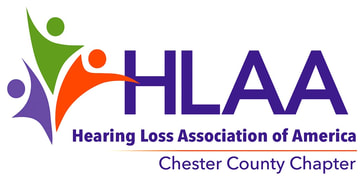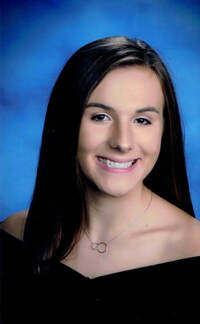- Home
- About
-
RESOURCES
- Books and More
- Assistive Listening Device information & websites >
- Best Practices Questions
- OTC Hearing Aids information!
- Mortimer Bauer Scholarship Information >
- Coronavirus and Hospitalization
- HLAA 2019 Convention reports!
- Closed Captions at the Movies
- Volumetrics - Hearing Pollution
- WCU Speech & Hearing Clinic
- Hearing loop
- National Institute on Deafness and Other Communication Disorders
- Tax Breaks from Uncle Sam
- Hearing Loss Southeastern PA
- dB Exposure Limits Chart NIOSH
- Theaters with Assisted Listening
- Help4Hearing / Hearing Aid Project
-
Photo Gallery
- Newsletter Archives
- Meeting & Events
- Contact
- Donations
- SE-PA 2024 Conference info
What would you like the world to know about you?
We are born with five senses: sight, touch, hearing, taste, and smell. To everyone around me, I look just like everybody else, but if you look close enough at my ears, I’m not. Day in and day out, I wake up and the first thing I reach for are my hearing aids, sitting on my nightstand. I do not have normal hearing like everyone else, and this has defined me.
It is no joke: it is not easy being able to hear everyday. It took a long time for me to be comfortable with who I am, accept my reality, and embrace it; once I did these things, my hearing loss empowered my every moment. It is something beautiful, something positive and influential, and I want to share this light with the world.
I like to look back and think about the small moments that have shaped me into who I am today. To me, it is the small moments that count like the time I was first able to introduce myself, my disability, and my accommodations comfortably to a teacher; the time I could comfortably respond when kids in school pointed to my ears and asked, “what’s that?”; the countless times I asked my friends to speak up so I could hear; and the times I repeatedly asked my dance teachers to wear my bluetooth microphone, even when they replied no. Moments like these, where I accept and embrace my reality, have strengthened my courage and advocacy.
In the summer of 2018, I proposed a panel to the Alexander Graham Bell Foundation for the Deaf and Hard of Hearing’s National Convention, and my proposal was accepted. I collaborated with one of my best friends — who is completely deaf — and we presented our stories about living with hearing loss. As I was sharing my story with strangers — people like parents of hearing impaired children and hearing loss support teachers — they were eager to listen; they wanted to soak up the significant moments from my life. They asked the types of questions you cannot find answers to in a book, and I was able to talk with and help them to the best of my ability. A mother of a hearing impaired daughter of my age asked about our methods of advocating for ourselves in the school environment. I told her and the whole audience about how I work to meet my teachers every year prior to the first day of school to introduce myself, my story, and my accommodations. I shared that it was not easy to find the courage to advocate for myself, but I surrounded myself with people who were always kind and encouraging. As we talked, I saw the tense shoulders of mothers of hearing impaired children lower and the worried creases on their foreheads lessen. I saw light bulbs go off for hearing loss support teachers who gave affirming nods to every response. By the end of our panel, I realized something that I will always keep with me: I was a light of hope for these people, living proof that we have no limitations in life.
Reflecting on the convention later in the year, I remembered the signs of relief in the parents and the support from the teachers. Therein lies the positive influence I set out to achieve; I saw a beautiful change in the outlook of my audience. This was only the beginning of a journey to forever release the light that is my disability. It differentiates me from everyone: it has empowered me, pushed me to find myself, and will continue to propel me to the best version of me.
Emily Reester
We are born with five senses: sight, touch, hearing, taste, and smell. To everyone around me, I look just like everybody else, but if you look close enough at my ears, I’m not. Day in and day out, I wake up and the first thing I reach for are my hearing aids, sitting on my nightstand. I do not have normal hearing like everyone else, and this has defined me.
It is no joke: it is not easy being able to hear everyday. It took a long time for me to be comfortable with who I am, accept my reality, and embrace it; once I did these things, my hearing loss empowered my every moment. It is something beautiful, something positive and influential, and I want to share this light with the world.
I like to look back and think about the small moments that have shaped me into who I am today. To me, it is the small moments that count like the time I was first able to introduce myself, my disability, and my accommodations comfortably to a teacher; the time I could comfortably respond when kids in school pointed to my ears and asked, “what’s that?”; the countless times I asked my friends to speak up so I could hear; and the times I repeatedly asked my dance teachers to wear my bluetooth microphone, even when they replied no. Moments like these, where I accept and embrace my reality, have strengthened my courage and advocacy.
In the summer of 2018, I proposed a panel to the Alexander Graham Bell Foundation for the Deaf and Hard of Hearing’s National Convention, and my proposal was accepted. I collaborated with one of my best friends — who is completely deaf — and we presented our stories about living with hearing loss. As I was sharing my story with strangers — people like parents of hearing impaired children and hearing loss support teachers — they were eager to listen; they wanted to soak up the significant moments from my life. They asked the types of questions you cannot find answers to in a book, and I was able to talk with and help them to the best of my ability. A mother of a hearing impaired daughter of my age asked about our methods of advocating for ourselves in the school environment. I told her and the whole audience about how I work to meet my teachers every year prior to the first day of school to introduce myself, my story, and my accommodations. I shared that it was not easy to find the courage to advocate for myself, but I surrounded myself with people who were always kind and encouraging. As we talked, I saw the tense shoulders of mothers of hearing impaired children lower and the worried creases on their foreheads lessen. I saw light bulbs go off for hearing loss support teachers who gave affirming nods to every response. By the end of our panel, I realized something that I will always keep with me: I was a light of hope for these people, living proof that we have no limitations in life.
Reflecting on the convention later in the year, I remembered the signs of relief in the parents and the support from the teachers. Therein lies the positive influence I set out to achieve; I saw a beautiful change in the outlook of my audience. This was only the beginning of a journey to forever release the light that is my disability. It differentiates me from everyone: it has empowered me, pushed me to find myself, and will continue to propel me to the best version of me.
Emily Reester
- Home
- About
-
RESOURCES
- Books and More
- Assistive Listening Device information & websites >
- Best Practices Questions
- OTC Hearing Aids information!
- Mortimer Bauer Scholarship Information >
- Coronavirus and Hospitalization
- HLAA 2019 Convention reports!
- Closed Captions at the Movies
- Volumetrics - Hearing Pollution
- WCU Speech & Hearing Clinic
- Hearing loop
- National Institute on Deafness and Other Communication Disorders
- Tax Breaks from Uncle Sam
- Hearing Loss Southeastern PA
- dB Exposure Limits Chart NIOSH
- Theaters with Assisted Listening
- Help4Hearing / Hearing Aid Project
-
Photo Gallery
- Newsletter Archives
- Meeting & Events
- Contact
- Donations
- SE-PA 2024 Conference info

